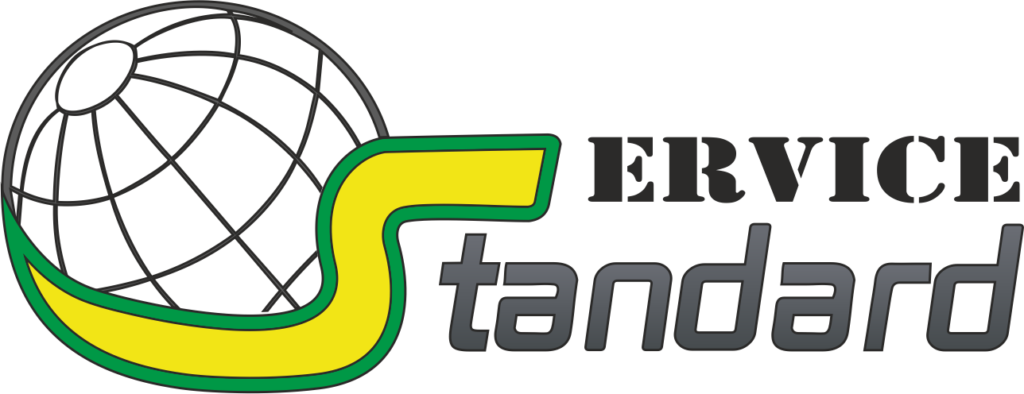Pharmaceuticals in Uzbekistan: Custom-designed wastewater treatment facilities
Pharmaceuticals in Uzbekistan: Custom-designed wastewater treatment facilities
The pharmaceutical industry is one of the most important, at the same time complex - structured branches of the chemical industry, characterized by large number of sub-sectors, high level of research and development and significant capital expenditures. It is obvious that availability of high quality products at the modern pharmaceutical industry have vital importance to ensure the health of population.
The industry is characterized by permanently high rates of growth in production and profits, and the medicines demand in the world and in individual countries practically does not depend on the current state of the economy . The pharmaceutical industry is currently acting as one of the important sectors of the world economy, which have its impact on cross-sectoral areas: healthcare, insurance, finance, etc.
For the last two decades, pharmaceutical industry in Uzbekistan has achieved high results in terms of quality and increasing the number of manufacturers of medicines to 146 enterprises. Currently, there are 28 directions of medicine supplied by more than 2 000 items of modern high-quality medicines produced in the local market, this result belongs to 35 pharmacotherapeutic groups. These products are injection solutions, tablets, capsules, ointments and gels, tinctures, syrups, as well as 177 types of medical products. 42 enterprises introduced the ISO-9001 quality management system, and 8 enterprises - international standard GMP (Good manufacturing practice).
As for the results of 2016, the share of domestic medicines in the total volume of products represented on the country's pharmaceutical market was 55%. In accordance with approved Program for the localization of production of finished products, components and materials for 2017-2019, in the pharmaceutical industry, realization of 179 projects for the production of previously imported pharmaceuticals should be launched, which implies construction and modernization of the production capacities of the industry based on modern technologies.
Development and introduction of modern technologies in pharmaceutical industry , increasing the productivity and volume of production is the dialectic of the modern production process. This evolutionary-positive influence has its risks and might have negative impact on the environment. For this reason, most of the countries take necessary measures from legislative side through updating of laws, as in the case of Uzbekistan. To prevent negative impact from pharmaceutical industry the strict requirements to industrial water-treatment facilities should be applied.
Wastewater from pharmaceutical production has very complex composition. This exacerbated by the specific requirements for such type of manufacture, its flexibility, which is associated with the ever-changing demand for pharmaceutical products. For this reason, to ensure proper installation of wastewater treatment facility, the terms of reference should reflect comprehensive and authentic information on the composition of sewage in a particular production area. Incorrect data jeopardizes the design of technological scheme, and, as a result, since the facility wont function properly, this will bring significant financial losses at its replacement. For this reason it is important to pay attention for hiring qualified specialists who will design the whole technological process from the beginning.
Brief information of certain production processes and effective process flow sheet that are recommended for wastewater treatment in a pharmaceutical company introduced below.
at the pharmaceuticals plants, wastewater should go through deep sterilization prior to discharge into the environment. The most effective way, which guarantees the complete destruction of infectious microorganisms, is thermal sterilization of effluents.
Wastewater sterilization process deactivates all vital microorganisms, viruses, plasmids, biological agents and DNA fragments. Such deactivation completely destroys biological activity of microorganisms and biological agents.
Thermal deactivation by steam is considered as the most effective and reliable method of wastewater treatment is . In case of inability to apply thermal treatment, other methods should be applied.
…………………
………………………………………………………………………………………………………………………………………………………………..
Exhausting of air from the process
The temperature and time of wastewater treatment are the main factors for successful thermal disinfection of waste-water. When the wastewater is heated (temperature 121 ° C (2 bar) even heat-resistant spores of Bacillus stearothermophilus and free parts of DNA are decayed in 15-20 minutes, this occurs in the standard process of thermal disinfection. In particular cases thermal decontamination mode can be used providing a temperature of 134 ° C (3 bar) for 120 minutes.
Based on the specific conditions, to design the thermal wastewater treatment plants, the Customer should provide all relevant information and should ensure that information is correct for 100%.
On the example of the wastewater treatment process in the production of vaccines, we can learn how wastewater thermal sterilization plant with a capacity of 5 m3 per day operates.
In comparison with equipment for continuous treatment such installations have a slightly higher level of operating costs, they require less time and effort to monitor and documentation the decontamination process. Moreover, this method is the safest and most reliable in the wastewater treatment. In the cost estimate, most expenses are related with generating of steam during the operation of the wastewater decontamination plant. Due to equipping the units with the heat recovery system, energy efficiency is at advanced level.
Fully automatic control or manual control
Infected wastewater enters the buffer tank with a volume of 1 m3. The buffer tank has a heat insulated covering and, when necessary, can also be sterilized. To ensure that dangerous spores won’t enter the environment the exhaust air line is equipped with a sterilization filter. Installation of thermal disinfection of sewage can operate in fully automatic or manual control mode. To achieve maximum performance, thermal deactivation unit is equipped with two reactors. Once the water level in the buffer tank reaches the programmed value, the first out of two reactors is filled with 500 liters of infected effluent.
Sterilization reactor is a tank with capacity of 0.75 cubic meters with a reliable double thermal insulation. The reactor is equipped with the necessary automatic power control systems. The whole facility is made of stainless steel 1.4571 rank, and the exhaust air is sterilized on a special filter with electric heating.
The process of thermal sterilization of effluents starts after reaching a predetermined volume of filling the reactor. Operation, time and temperature of the sterilization facility is carefully monitored, controlled and documented in automatic mode.
Reactors of intermittently operating wastewater sterilization plant
Heating of the first sterilization reactor is carried out by direct injection of steam from the in-production steam line. Inside the machine, the temperature is maintained at 121 ° C for 20 minutes. Then, disinfected effluents heat the second reactor, flowing through its heat jacket. Such solution makes possible to reduce significantly consumption of the energy and water for cooling wastewater disinfection facility.
In order to prevent stagnant zones inside the pipelines and to equalize the temperature during the deactivation of effluents, a special pump for recirculating hot water is installed inside the sterilization reactor. After the sterilization process is completed, the wastewater is cooled with cooling water inside the double jacket to a temperature of 35 ° C and discharged to the city sewage system.
This example of the implementation of the thermal disinfection of sewage confirms the reliability and efficiency of the deactivation process in the pharmaceutical industry.
Thereby, the design of the most efficient drain and water treatment systems should imply deep analysis of each component: economic design, location of the constructed/reconstructed facility, production of special equipment, inlet of engineering communications and the installation and commissioning operations. To perform these, the Customer require the integrated involvement of qualified specialists (engineers, economists, ecologists, etc.).
The design and construction services for water disposal and water treatment facilities are provided by specialized design institutes. The manufacture of special facilities is provided by the engineering equipment manufacturers. In addition, to obtain guarantees of compliance with all technical and economic requirements, the Customer requires the services of specialized companies for technical supervision and construction expertise. In addition to financial expenses, Customer spends a lot of time and effort to get agreement from respective agencies/instances or to find universal service providers for all of the above requirements. In this vein, the chain from the design of the project to installation of equipment can easily be simplified by hiring an appropriate engineering company with experience in implementing of similar projects that has highly qualified specialists ready to perform the task in view of all aspects (economic, technological, environmental and other) .
Providing of such complex services in Uzbekistan can be afforded by a small number of organizations. One of such organizations is UBI Consulting LLC.
UBI Consulting LLC, certified according to the international standards ISO and OHSAS is a diversified engineering consulting company, it is a distributor of the leading manufacturers of treatment facilities and can provide production and delivery of container-type engineering equipment made of fiberglass, HDPE, metal, underground and aboveground, treatment of industrial, storm, domestic wastewater, as well as - equipment for the treatment facilities: pumping equipment, gratings, screens, etc., with simultaneous provision it services to ensure:
- Design;
- Surveys;
- Repair;
- Replacement of the equipment;
- Scheduled and unscheduled maintenance;
- Training of staff;
- Operation of treatment plants;
- Installation works;
- Pre-commissioning works;
- Manufacture of standard and non-standard equipment;
Production of treatment facilities and its components in industrial scale has not yet been widely spread in Uzbekistan. The Customer, while choosing the supplier of ready-made and approved solutions for pharmaceutical companies, may always come to UBI Consulting LLC as to the best choice to achieve the goals and key results.
Author: Abdulaziz Ibragimov - Director, UBI Consulting Design, supply and commissioning of specialized treatment facilities for various enterprises of Uzbekistan http://www.ubi.uz/ https://www.facebook.com/permalink.php?story_fbid=765098286973343&id=754385321377973&substory_index=0
 КАТАЛОГ СТАТЕЙ.
КАТАЛОГ СТАТЕЙ.




